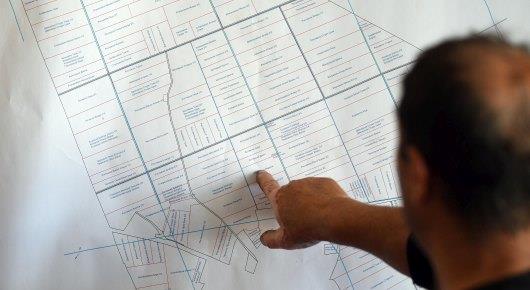Land professionals convene in Budapest to discuss ‘land grabbing’ and more

The FAO-aided LANDNET opened its three-day annual workshop here today, attracting more than 80 land administration and management professionals. Though informal in nature, LANDNET is a network that continues to grow, filling a niche as a much-needed forum to exchange views and ideas on land tenure issues.
This year’s meeting deals mainly with the Sustainable Development Goals (SDGs), the Voluntary Guidelines on the Responsible Government of Tenure of Land, Fisheries and Forests (VGGT), land market development and regulation, land consolidation and land lease.
A mix of people from 30 countries, each with different experiences and regulatory situation, sets the scene for lively discussions and learning.
“Land grabbing is a hot topic, often heard in the news,” said FAO land tenure officer Morten Hartvigsen. “We’ll discuss how it is perceived in different parts of Europe and Central Asia, and try to find a common understanding of it.”
“Since LANDNET is a network, a platform to connect the people, country presentations are part of the programme, too,” Hartvigsen added. “These cover the whole region: from European member countries, across the Balkans and on to Central Asia.”
LANDNET members are experts, public officials, representatives of the civil society and academics, all concerned with issues like land ownership, usage rights, land cadaster, and related regulations. The first workshop was held in 2002, and the initiative has been operating under the LANDNET name since 2011. From the beginning, it has been driven and supported by FAO.
Several issues hinder the development of a well-functioning land market and ownership systems across the region: fragmented agricultural land, incomplete land register data, women’s lack of access to land ownership, and others. Family farms tend to absorb all the negative consequences of these obstacles.
FAO is working on many related activities in the Europe and Central Asia region, under its Regional Initiative to empower smallholders and improve rural livelihoods.
3 October 2017, Budapest, Hungary
